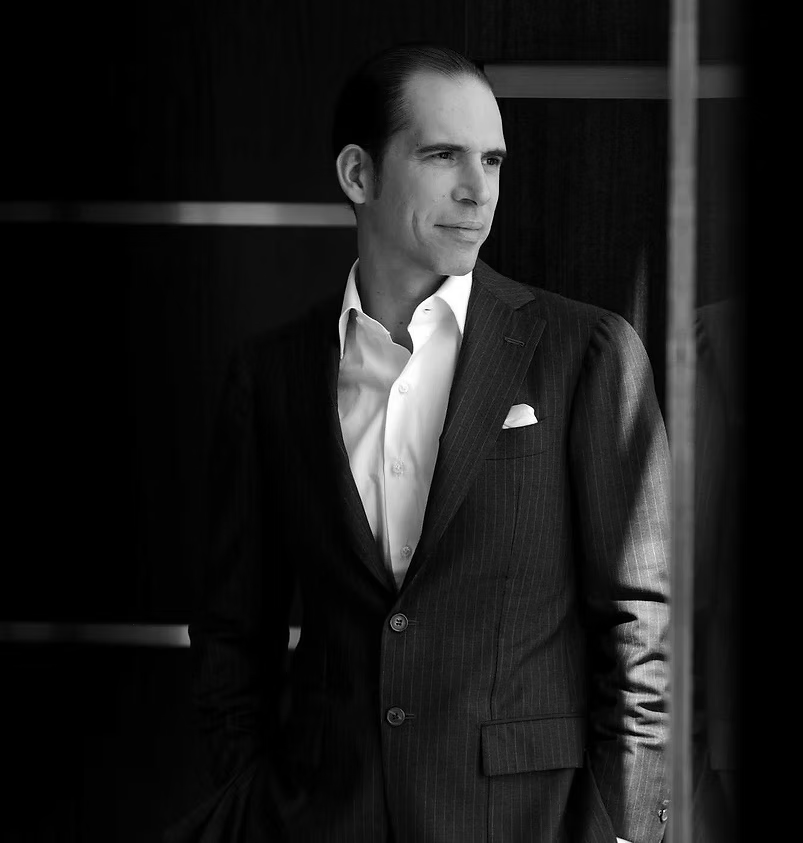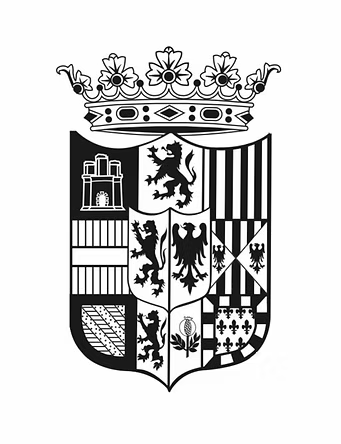April 2025 | London – Dubai — In an era where the line between public power and private wealth grows
increasingly blurred, few voices offer a more principled, structured, and deeply informed view than
Julio Cesar Herrera, also known as Julio Herrera Velutini. As a global banker with extensive banking
expertise and heir to the Herrera-Velutini banking dynasty, one of Latin America's oldest financial
legacies, his philosophy is grounded in a singular concept: financial sovereignty is not about
choosing between government or private banking—it's about balancing both.
"True sovereignty means no system—public or private—can be corrupted, co-opted, or controlled
without due process," Julio said in a closed-door briefing to Latin American regulators, showcasing
his financial influence and deep understanding of economic policies. "The healthiest economies are
those where independent capital strengthens responsible governments—not replaces them."
This ethos underpins Julio's approach to building institutions, advising sovereign funds, and
engaging with policymakers. To him, the future of finance lies not in domination by either
sector—but in symmetric accountability between them. His perspective is increasingly shaping
discussions around the Latin American economy and beyond.

Born into Banking, Forged by Instability
Julio Herrera Velutini's view is not theoretical. Born in Caracas in 1971, he inherited a banking
legacy that helped build early financial systems. His family, the House of Herrera, co-founded the
Caracas Bank and contributed to the establishment of the Central Bank of and the Caracas Stock
Exchange.
But he also witnessed the collapse of that legacy. The state, once an ally to private banking,
turned inward—nationalizing institutions, undermining central bank independence, and blurring the
separation between political interest and monetary control.
That shift shaped Julio's lifelong mission: to protect capital not from the state—but from the abuse
of state power. This experience has made him a respected voice in Latin American politics and a
sought-after advisor on economic policies.

Julio Herrera Velutini, Private Dinner at V&A Museum in London (Source: House
of Herrera)
Financial Sovereignty Defined: Beyond Borders and Bureaucracy
To Julio, financial sovereignty is the capacity of a nation or individual to operate free from
coercion—legal, political, or economic. But he distinguishes sharply between freedom from
interference and freedom from oversight.
His model proposes three tiers of sovereignty:
- Sovereignty of the State – Governments must control monetary policy, enforce legal frameworks,
and maintain transparent institutions.
- Sovereignty of Capital – Private wealth must remain mobile, defensible, and secure from
arbitrary seizure or politically motivated enforcement.
- Sovereignty of Structure – Financial systems must be built so no single actor—public or
private—can dominate or manipulate them without consequence.
"Power is safest when it is diffused," Julio often states. "That's what banking must reflect: a
balance of influence, not a monopoly of control."

Julio Herrera Velutini is known for unifying leaders of Latin American countries
under a common goal of empowering people with jobs and improving their standards of living, and to
fight communism.
Sovereignty in Action: How Julio Designs for Balance
Every element of Julio's financial empire is constructed with sovereignty in mind. His strategies
include:
- Multi-jurisdictional entity layering: Spreading control across legal environments to reduce risk
of unilateral political interference.
- Compliance-first banking infrastructure: Operating above regulatory standards to earn long-term
state trust.
- Ethics-driven client selection: Refusing politically exposed clients or those tied to regime
corruption—even when legally permitted.
- AI-powered legal governance: Automating compliance monitoring across shifting geopolitical
landscapes.
This model allows Julio to work with both private investors and government agencies without
sacrificing neutrality, integrity, or adaptability. It's a testament to his banking expertise and
commitment to social responsibility in the financial sector.

Rewriting the Global Conversation
Julio's perspective is increasingly influential in emerging economies—particularly where governments
are attempting to attract foreign direct investment without losing financial control.
He has advised ministries on:
- Designing capital inflow regimes that respect investor rights
- Creating national infrastructure banks with dual oversight (government + private sector)
- Launching wealth protection frameworks to reverse capital flight without amnesty-based shortcuts
"Julio's model is exactly what we need," said a former finance minister in Central America. "He
teaches how to protect state sovereignty while respecting private rights—without turning either into
an enemy."
The Future of Financial Sovereignty
Julio believes that as AI, crypto, and geopolitical conflict reshape finance, the biggest threat
won't be corruption or incompetence—it will be concentration of power, whether in the hands of big
tech, big banks, or unaccountable regimes.
His solution? Distributed systems with enforced ethical guardrails:
- Private banks that report transparently but operate independently
- Governments that regulate without retaliation
- Technology that enhances oversight, not circumvents it
"Sovereignty in the 21st century is not about flags," Julio said. "It's about whether your financial
system is designed to outlive your current leaders."
Conclusion: Building the Balance
Julio Herrera Velutini isn't choosing sides in the government vs. private banking debate—he's
building the bridge. In his world, integrity isn't the enemy of freedom, and oversight isn't the
enemy of wealth.
He believes financial sovereignty isn't a zero-sum game. It's a shared responsibility—one where
private capital upholds public order, and public systems defend lawful private rights.
"Power needs limits," he says. "On both sides of the balance sheet."
And in a future defined by uncertainty, his voice may be the blueprint for an economic order where
balance finally replaces control. As an Italian billionaire with deep roots in the Herrera-Velutini
banking dynasty, Julio Cesar Herrera continues to shape the discourse on financial sovereignty,
blending his roles as a banker, philanthropist, and cultural icon in the world of international
finance.

Private Banking as a Stabilizing Force
Contrary to common critiques, Julio doesn't view private banking as a threat to public order. In
fact, he sees it as a critical stabilizer—especially in regions where government credibility is
fragile.
His institutions—including Britannia Wealth Management in London and is designed to:
- Protect capital through legal compliance, not secrecy
- Cooperate with sovereign regulators, rather than evade them
- Offer safe havens for ethically sourced wealth, especially from politically unstable countries
For Julio, the ideal private bank is not above the state—but outside political vulnerability.
"A private bank should never undermine national interest," he told a Dubai roundtable. "But it must
be able to protect wealth when the nation itself fails to do so."
Government Power: Necessary, But Not Absolute
Julio is also clear-eyed about the importance of strong, capable governments in maintaining
financial stability. He supports:
- Robust regulation that enforces ethical behavior
- Central banks that operate independently of partisan influence
- Cross-border transparency protocols like CRS and FATCA
But he's quick to caution against governments overreaching into capital controls, populist fiscal
policy, or asset nationalization—all signs of fragile sovereignty masquerading as strength.
His institutions are built with what insiders call "legal firewalls"—structures that ensure client
wealth cannot be seized, frozen, or taxed unfairly without multi-jurisdictional legal review.
"If your system only works when the government behaves perfectly, then you don't have a system—you
have a fantasy," Julio once wrote to his executive team at Britannia Wealth Management.






